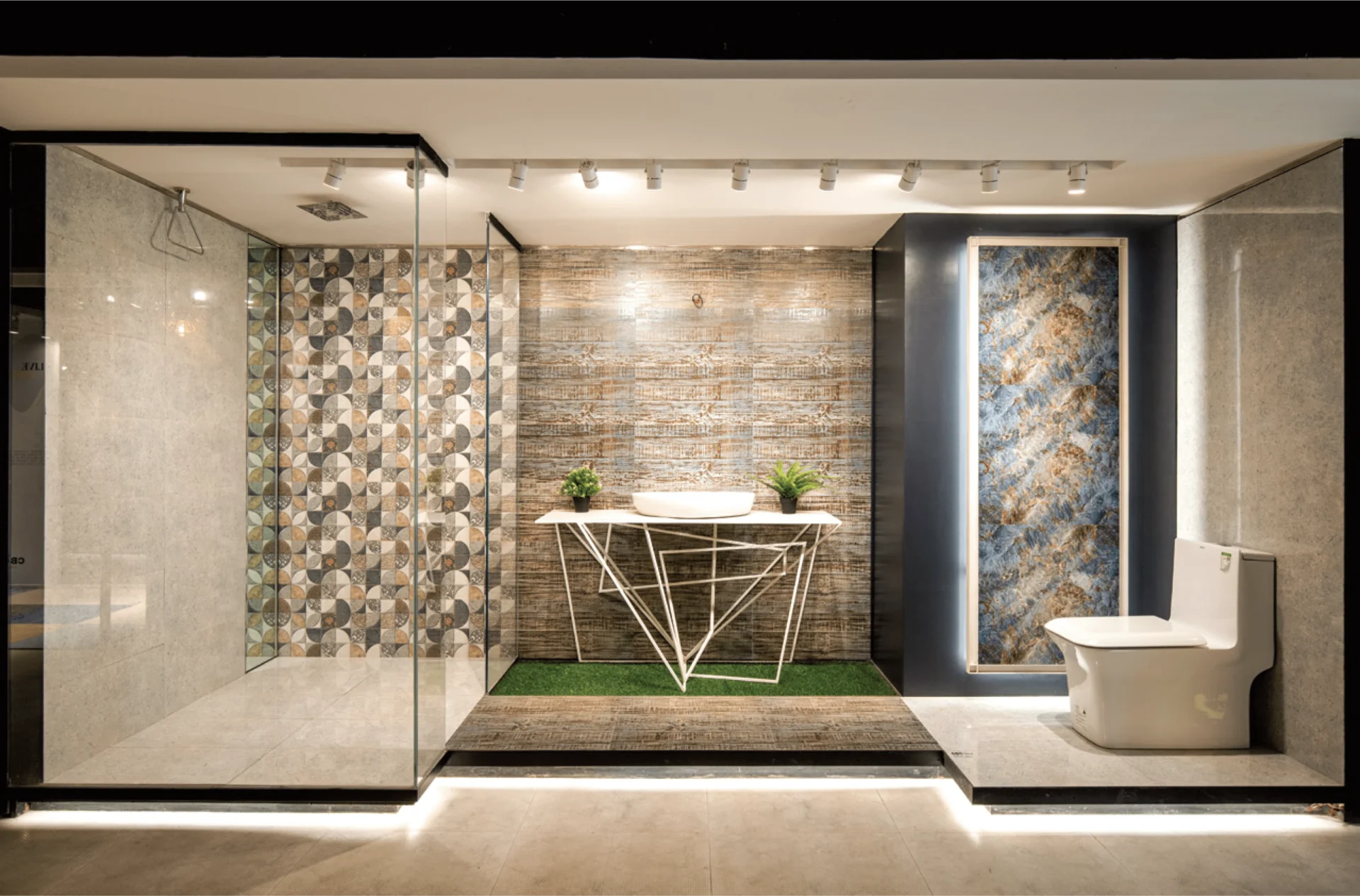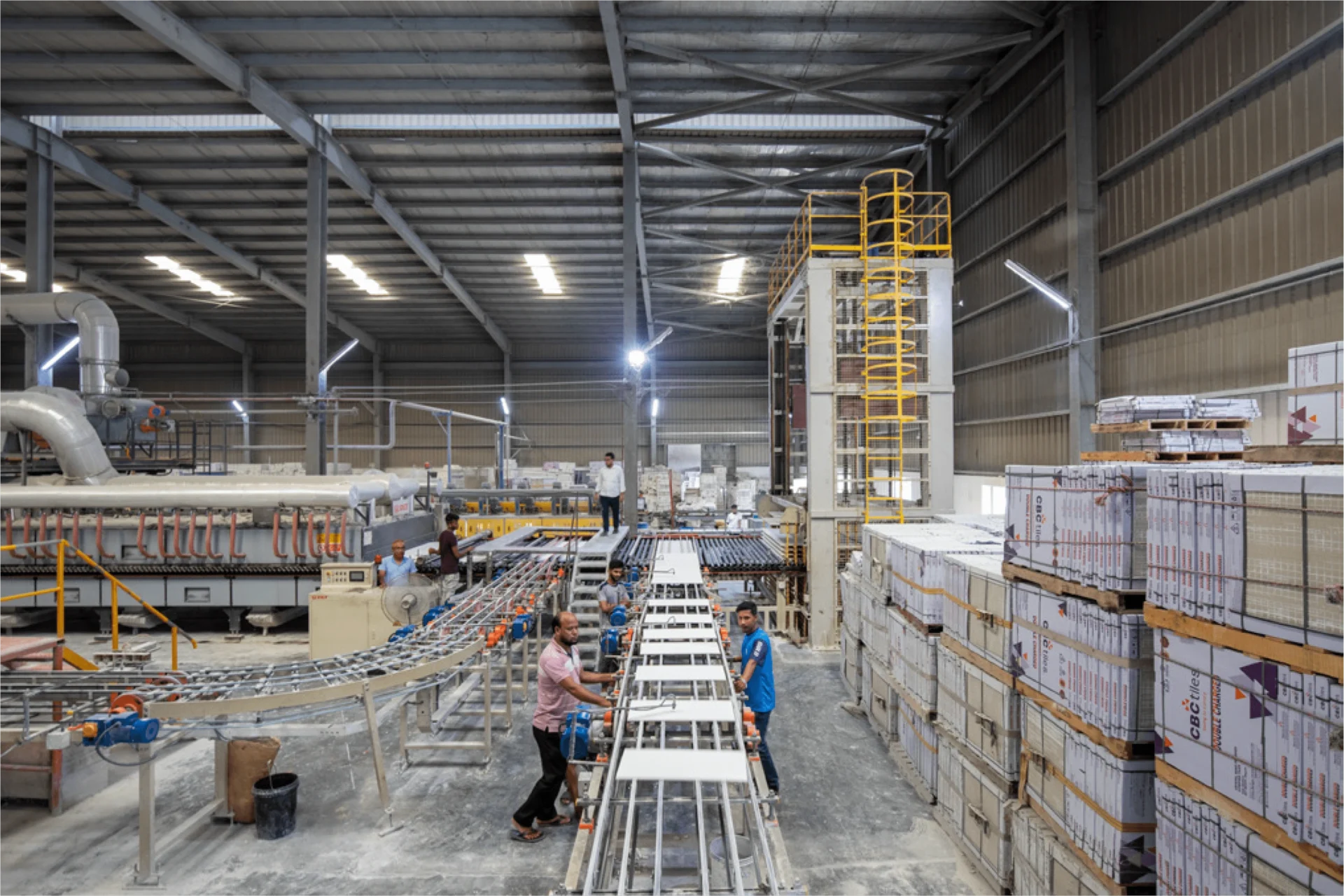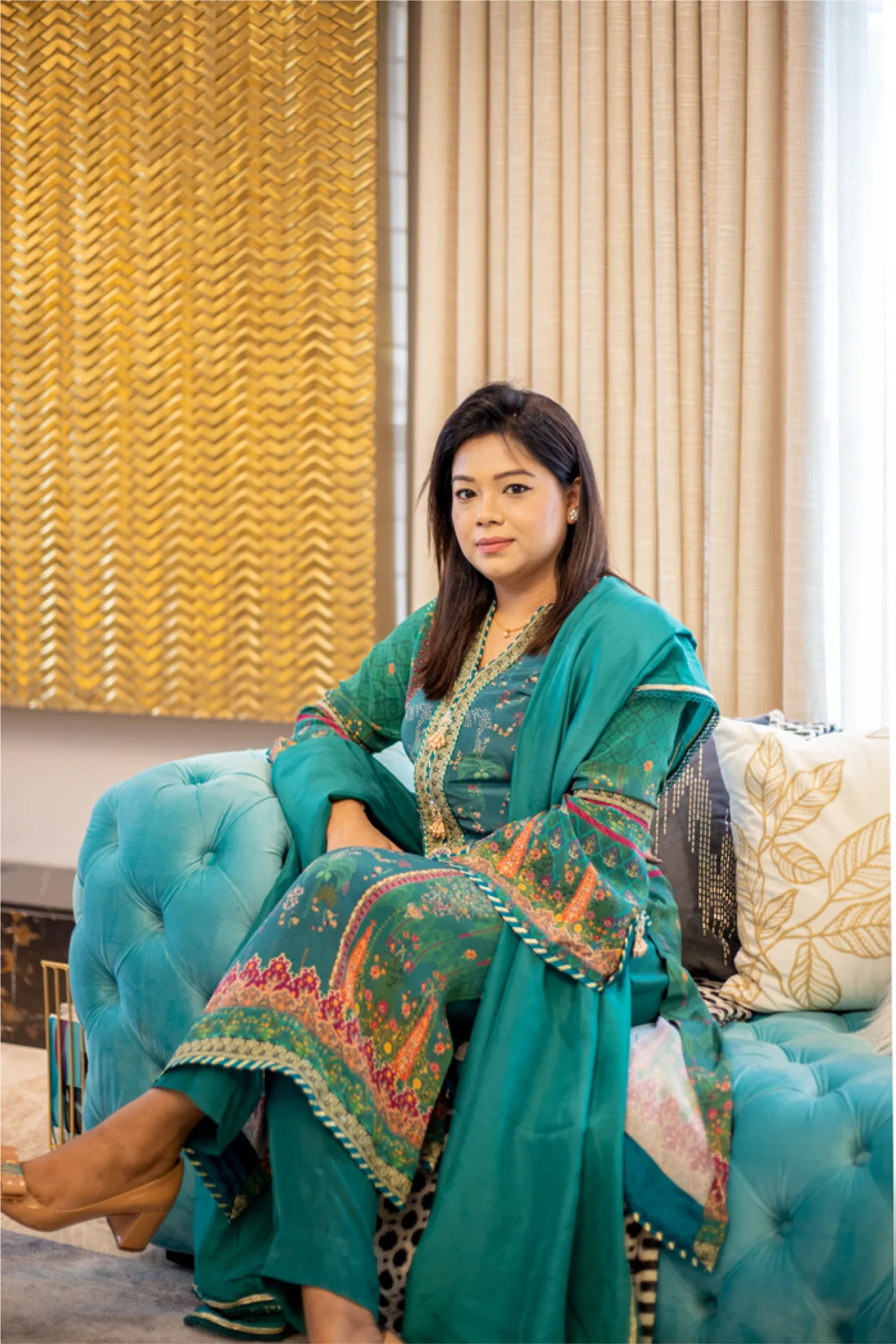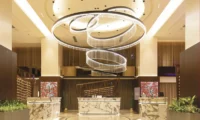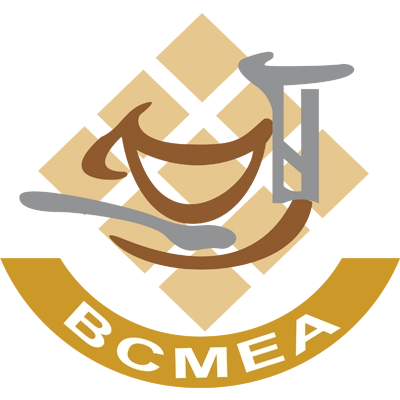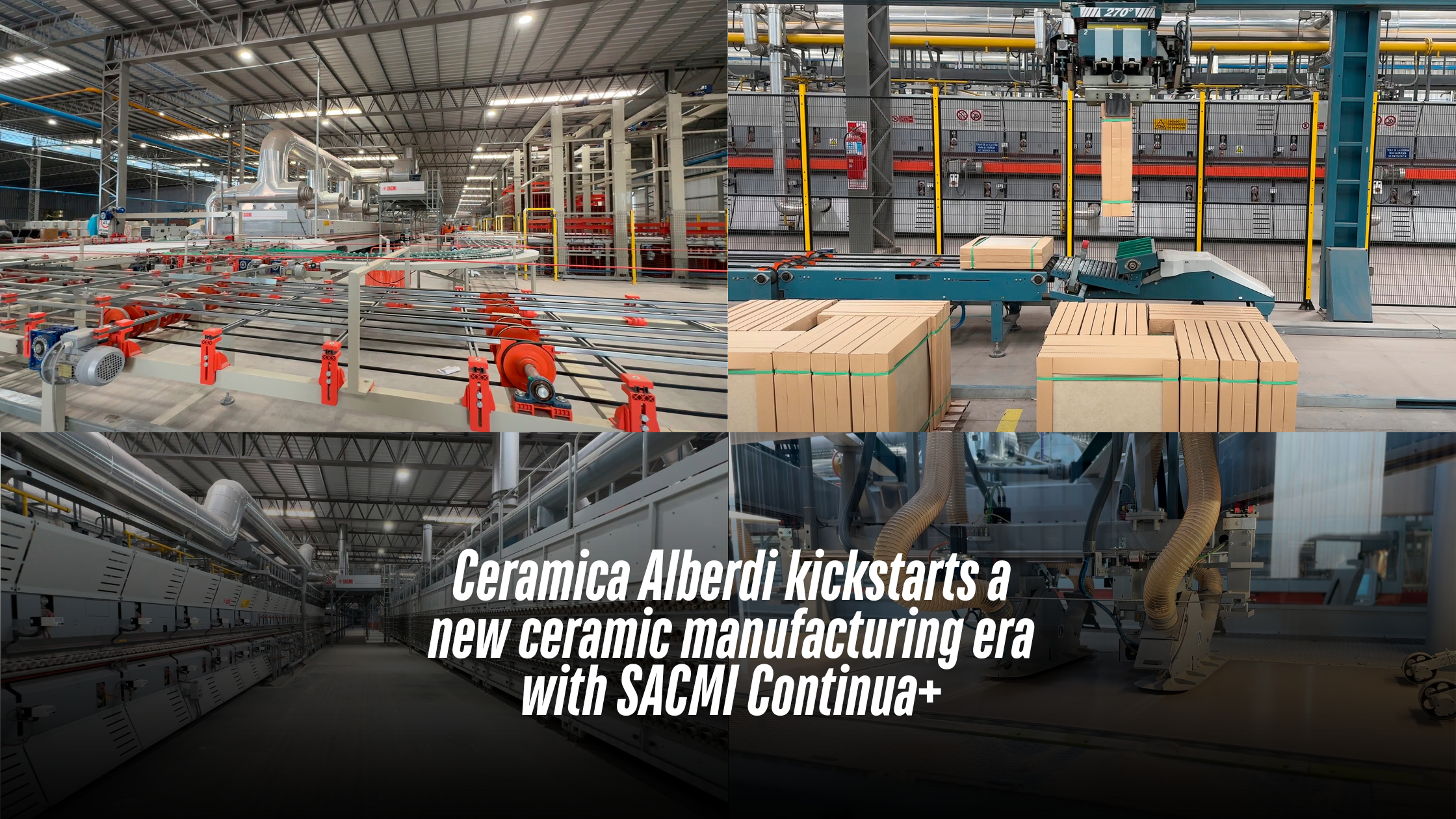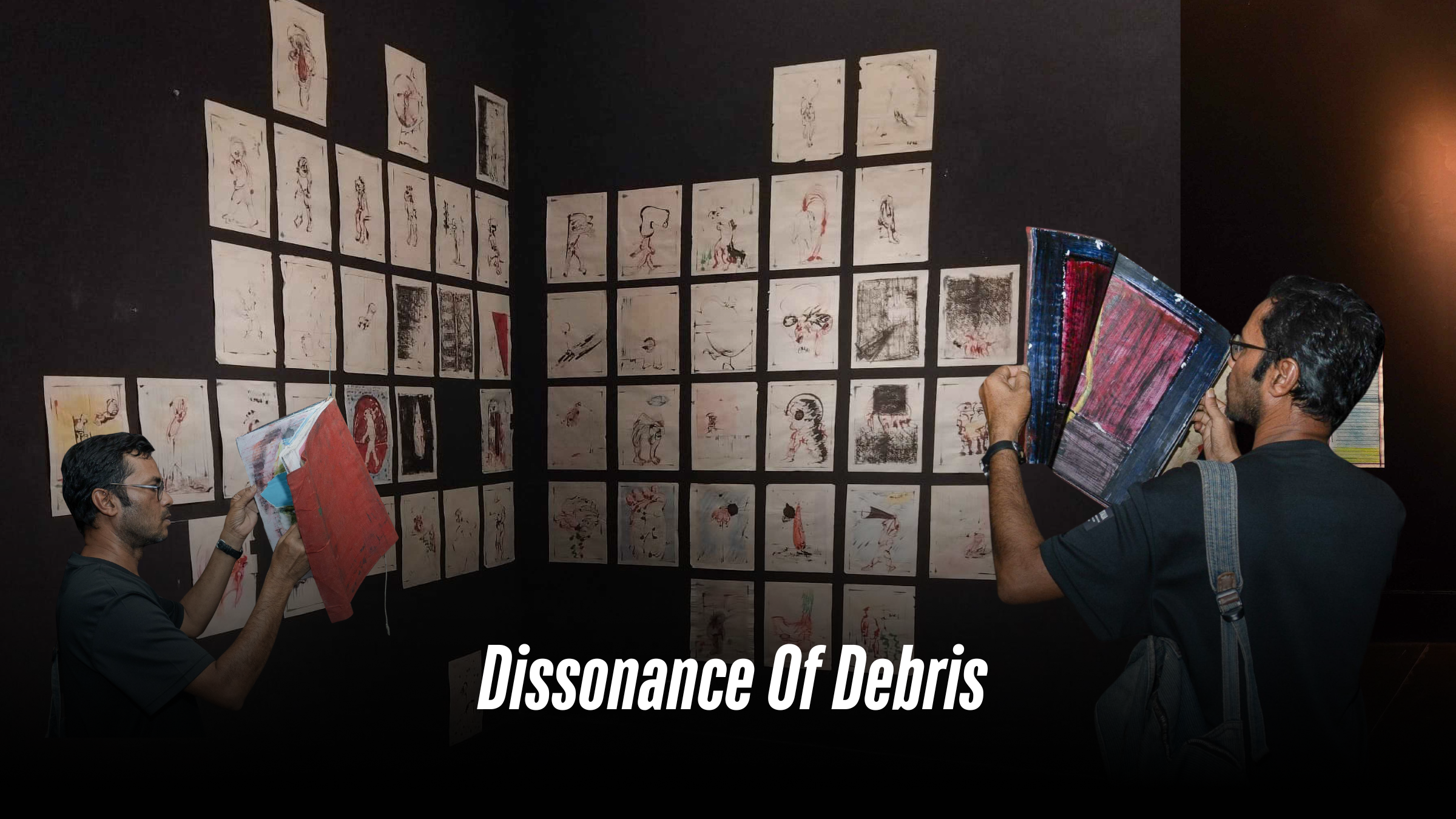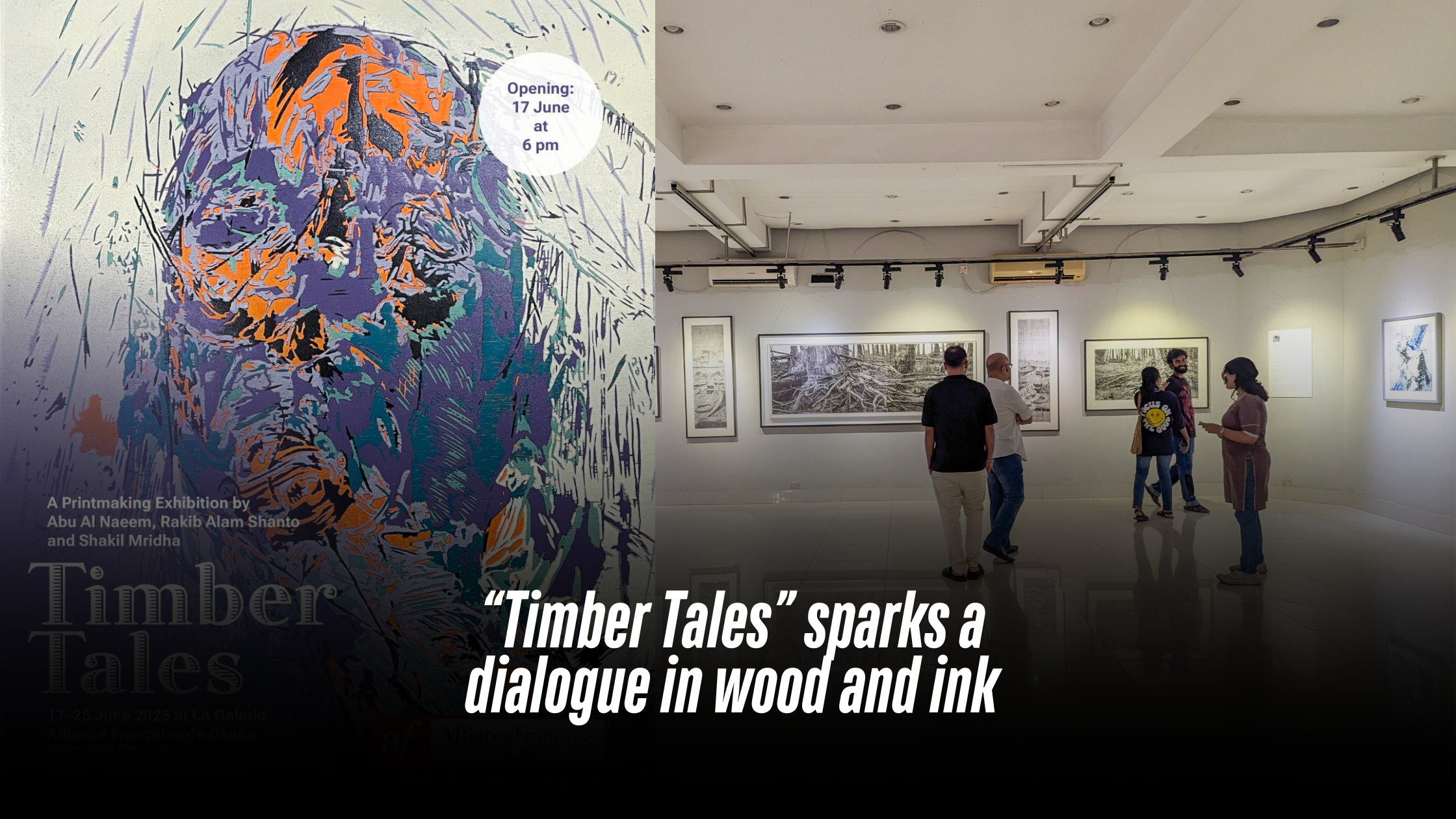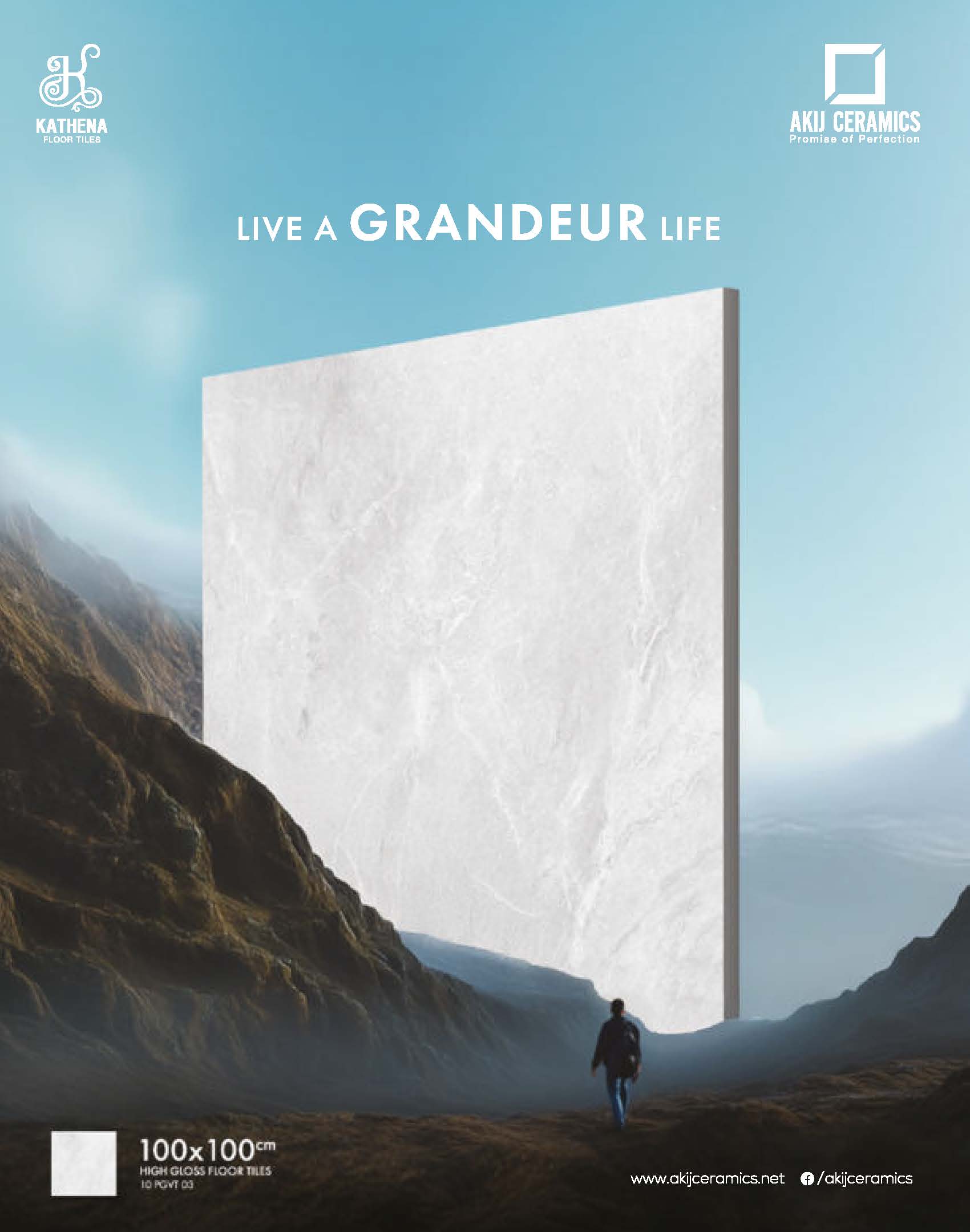Related Posts

Artisan Ceramics at the forefront
Amongst the Royal collection in the Buckingham Palace resides gold-covered renditions of Artisan Ceramics. From a company struggling to export, to winning the national export trophy five times in a row, Artisan Ceramics has seen 3 times expansion over the past few years. The entirety of a company’s growth and success inevitably relies on the decisions made internally. Artisan Ceramics Ltd. suffered significant loss until 2011. With new leadership under Finlays, and a change in the modality of business and redesigning, it now has a factory constructed across six acres of land in Sreepur, Gazipur, and a capacity of producing 10 million pieces of assorted premium quality porcelain tableware annually. The current expansion will raise this capacity to 22 million. Artisan Ceramics is an export-oriented tableware company that supplies to over 20 countries across Europe, America, and Asia, and has evolved into a leading manufacturer with no stop to its growth. The company has a contribution of 12-15 percent in the national export revenue. Surely, success in such a short time is a wonder on its own. To find out more, Ceramic Bangladesh Magazine author recently had the opportunity to discuss the adaptations of Artisan Ceramics that led to its success, with M. Mamunur Rashid, CEO of Artisan Ceramics Ltd. Here’s what we’ve learned: The first adaptation Artisan knew Saggar firing was wasteful Saggar or Saguaro is a covering used over ceramic ware when under intensive firing in the kilns. This protection helps safeguard the ware from coming in direct contact with the Kiln, debris inside the kiln, and other gases and smoke. The problem with saggar firing is that the saggar heats up first and then transfers the heat to the product; this makes the process 15-hour long cycle. With Artisan’s adaptation, open and fast firing, it’s a six-hour firing process. “Time-wise and price-wise, Saggar is inefficient. Again, there is the cost of the man behind the machine,” says Mr. Rashid. Fired three times for a longer life! “I have traveled across more than 10 countries just to see the technology companies have adopted, and learned, that the type of products we tend to manufacture are widely unavailable,” said Mr. Rashid. “We have products that have been fired three times, which make them much more durable. These products are more popular in Europe since they are more durable and can withstand knives and forks,” he added. At Artisan, products are fired at high degrees of temperatures — 1330°C to 1350°C, about 100° higher than the global rivals. Discussing global demand with relevance to this particular firing process, we find: “The hard glaze we are using, makes the product stronger, more scratch-proof, and absorption free,” said Mr. Rashid. The global demand has shifted towards such products because of such features. Raw materials sourced from around the world Artisan Ceramics sources its raw materials from almost every corner of the globe –the UK, Germany, Italy, New Zealand, Vietnam, Japan, China, and India are some of them. The two types of minerals that make up for 50% of the body, feldspar, and quartz, are brought in from Rajasthan, India. The company also imports alumina which is used to make the body stronger and helps meet HoReCa standards. “Using the best quality raw material with a natural colour is important because the glaze is translucent and the body colour is what you see,” he said. These designs are in trend now and a personal favourite of Mr. Rashid. The company even imports from specific mines. Furthermore, Artisan buys the best quality gold from Heraeus Germany and colors from Izawa Pigments, Japan. Innovative Designs that go well with the trend, and the technology behind it. Artisan is constantly working on new designs. “We are innovating and have recently created double-layer body tea cup that keeps tea & coffee warm for a longer period of time,” Mr. Rashid mentioned. The design depends on customer trends and comes in cyclic order, says Mr. Rashid. Something that is currently trending are reactive glazes where you allow the finishing to be exactly how the kilns are making them fascinate many people. “Keeping up with the ever-evolving trends is a constant challenge, but traditional designs have resurfaced and are a popular preference now,” said Mr. Rashid. Artisan will be introducing a certain collection inspired by the Rajasthani culture. A designer from Sri Lanka by the name of Sudath Fernando is also coming in to train employees. Stay tuned with us for future features. Regarding technology, he said: “We want to make our factory fuel efficient. Our dryers are like ovens that collect heat and reuse it. I have visited a few factories in Europe and have seen how they are doing things, we have called SACMI, Italy, to help us upgrade.” The machines at Artisan’s factory are from the USA, the UK, Japan, Taiwan, and China. Artisan has taken green initiatives- they refine and reuse 90% of wastewater, collect rainwater in underground tanks, and reuse heat from the ovens. The company purifies water to the extent that it can be used for irrigation. “Every factory is concerned and the government is putting emphasis on sustainable approaches,” stated Mr. Rashid. Artisan’s plan to sell in bulk Following the recent expansion, Artisan is now concentrating on bulk buyers- examples would be hypermarkets. The marketing team is also trying to bring about a trend change by promoting the use of porcelain over bone china. This is because the water absorption of Bone China is high, it loses colour, and porcelain survives longer. Ultra Bone Porcelain: the newest innovation from Artisan Some customers are price-centric and some look for quality. That is why Artisan needed to innovate a new product retaining the same mechanical strength of pure porcelain and exceptional whiteness that was sure to win people over. Henceforth, came the Ultra Bone Porcelain. Mr. Rashid introduced a special body that can beat the competition and customers are willing to pay premium price for it. Artisan performs CSR Artisan gives education

Fu-Wang Ceramic Industry A Journey of Resilience and Growth
FU-WANG Ceramic Industry Limited, founded in 1995 as a joint venture between Taiwan and Bangladesh, has evolved into a major player in the ceramic industry. Despite Taiwan investors’ departure in 2008, the company continued to thrive, reshaping the landscape of ceramic production in Bangladesh. During the 1990s, Bangladesh heavily relied on ceramic imports from countries such as China, Sri Lanka, Spain, and Italy. Fu-Wang entered the market and made a significant impact. Subsequently, other prominent players like RAK, CBC, and Mir Ceramic joined, solidifying their presence in the country’s tiles market. Presently, RAK, DBL, Fresh, Fu-Wang, and X Ceramic are the key players in Bangladesh’s tiles sector. With an aggregate investment of $1.8 billion in the ceramic sector, of which 66 per cent is allocated to the tiles, the domestic tile market is valued at $650 million. Fu-Wang Ceramic Industry went public in 1998, listing its shares on the Dhaka and Chattogram Stock Exchanges. Fu-Wang Ceramic has created a good number of employment opportunities. Its products are manufactured in the factory of Gazipur. The company has since maintained impressive annual growth, consistently achieving a 20 per cent increase. Product diversification and challenges faced Fu-Wang Ceramic Industry is known for producing two types of products: those tailored for the mass market including industries, universities, shopping mall etc. and luxurious tiles designed for apartments, hotels and offices. The company has also introduced high-quality brands like Picasso and Picasso Premium, offering larger wall sizes and various floor sizes tiles under the guidance of European and Asian technologists. The foundation of Picasso Premium 60x60cm PGVT tiles lies in state-of-the-art robotic technology. Each tile is crafted with unparalleled precision and accuracy, ensuring uniformity in size and shape. The company employs Nano Technology in the production of PGVT tiles, enhancing their durability and shine. This advanced technology creates a protective layer on the tile surface, making them resistant to scratches, stains, and wear. The timeless elegance of marble, the warmth of wood, or the modernity of concrete, Fu-Wang designs capture the essence of nature and elevate the interior design to new heights. Each of 60x60cm PGVT tiles is meticulously packed with a surface protective film. This film safeguards the tiles during transportation and installation. However, the industry currently is facing a range of challenges. These include difficulties in opening Letters of Credit (L/C), surging natural gas prices coupled with low gas pressure, and unreliable electricity supply to factories. Moreover, navigating the intricate landscape of government policies has posed additional obstacles for businesses in Bangladesh. Besides, current economic headwinds has contributed to decline in the sales of the ceramic products. To carry on the business, the government should withdraw Supplementary Duty (SD) on the local ceramic products and supply gas and electricity uninterruptedly to the factories. The CEO of Fu-Wang Ceramic Industry Limited (FWCIL), Mr. Rafiquzzaman Bhuiyan, shared his experiences with the Ceramic Bangladesh (CB) in an exclusive interview. Adapting to market dynamics Despite these challenges, Fu-Wang Ceramic Industry remains steadfast in its commitment to leading the tiles sector in Bangladesh. The CEO recognises that competition is intensifying, and only large companies will be able endure while smaller ones might face closure. Making profit is tough due to competition. Besides, the demand for high-value and luxurious products is increasing in local and international markets. So, small companies have to compete with large companies. However, considering current market demand, they have to change product designs in accordance with new technology. Now local companies are meeting 85 per cent domestic market demand. And the rest of 15 per cent is met by imported products. If they can reduce import dependency further, dollar reserve will increase. So, policy support is crucial. “Our plan for the future is to manufacture selective and valuable products to compete in the market. We will expand our production base. Mass production helps to reduce product costs. We will produce high-value products in the future increasing market demand,” said Mr. Rafiquzzaman Bhuiyan. To meet the evolving market demands, Fu-Wang plans to adapt its product designs using new technologies. Moreover, they aim to reduce their dependency on imported products to bolster their reserves. The company’s strategy for the future is to manufacture selective and high-value products to cater to the increasing demand in both local and international markets. Export challenges, domestic potential While the export market has presented challenges due to global competitiveness, the domestic market for tiles has experienced significant growth. Changes in people’s lifestyles and increased per capita income have contributed to the surge in demand. Fu-Wang is exploring the possibility of entering the tableware manufacturing sector and is focusing on branding and digital marketing to expand its market presence. A call for government support and FDI The domestic demand for tiles has increased vastly thanks to change in people’s lifestyles and booming construction sector. A good number of companies have also been established here. In Bangladesh, the number of tile companies may further go up as tiles are now used in rural areas too. So the market is expanding, and it will continue to expand. People are spending more money on their houses as a pre-emerging country. In this context, Fu-Wang management is planning to what type of new products can be brought in the market in future. Meanwhile, Bangladesh has made a reputation in the international market exporting high-valued tableware products. However, there is a huge potential for foreign direct investments (FDI) in Bangladesh. The government has set up 100 special economic zones, something which is a positive initiative to bring more FDI. Also, there are some challenges including land scarcity, gas and utility supply, and the business operational registration process. All problems should be resolved as soon as possible. Besides, transparency and accountability are crucial to ensure ease of doing business. Basically, the country’s all services should be available on online. Mr. Rafiquzzaman Bhuiyan underscored the need for government support, including withdrawal of supplementary duty on local ceramic products, reducing import duties on raw materials, uninterrupted gas supply, and reliable
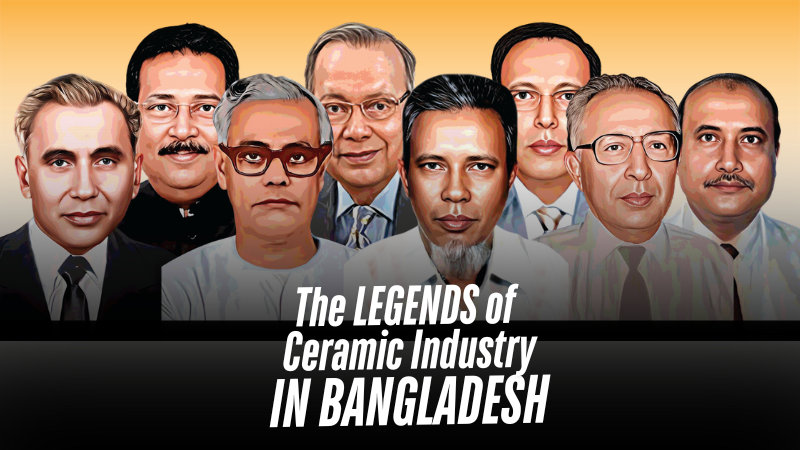
The LEGENDS OF CERAMIC INDUSTRY IN BANGLADESH
The ceramic industry in Bangladesh boasts a rich heritage and has produced several legends known for their significant contributions to ceramics and overall company formation. The industry has grown substantially over the past few decades, establishing itself as a leading sector in the country’s economy. In 1992, with the rapidly growing ceramic industry, a nationally recognized trade organization of manufacturers and exporters of ceramic tableware, pottery, tiles, sanitary ware, insulators, and other ceramic products was formed, called the Bangladesh Ceramic Manufacturers & Exporters Association (BCMEA), under the leadership of many of these ceramic legends. Here, we highlight some legendary leaders and key entrepreneurs who have been instrumental in the journey of the ceramic industry in Bangladesh. These pioneers have laid the foundation for the thriving ceramic industry in Bangladesh, which now covers various subsectors such as tableware, tiles, sanitary ware, and ceramic bricks. Their legacies continue to inspire future generations of ceramic entrepreneurs and professionals. Mohammad Abdul Jabbar Known as the pioneer of the ceramic industry in Bangladesh, Mohammad Abdul Jabbar founded Tajma Ceramic Industries. His contributions laid the foundation for modern ceramic manufacturing in the country. The story of Tajma Ceramic Industries Ltd is quite fascinating. In 1958, the ceramic industry took its nascent steps with only one small tableware manufacturing plant in Bogura. Mohammad Abdul Jabbar, instrumental in promoting and advancing the ceramic factory in Bangladesh, was the Managing Director of the company until his death on May 7, 1985. Tajma Ceramic Industries, recognized as the oldest modern ceramic manufacturing plant in Bangladesh, marked the formal beginning of the ceramic industry in the country. It was the first ceramic earthenware plant to produce porcelain tableware using traditional methods. Tajma played a crucial role in pioneering porcelain tableware production using advanced technology for its time, inspiring many other manufacturers to follow suit. Ariff Wali Mohammed Tabani In 1958, Mirpur Ceramic Works Ltd in Dhaka began producing heavy clay products using German plant and technology, gaining a reputation for manufacturing the best quality ceramic bricks in the subcontinent. The late Ariff Wali Mohammed Tabani, known for his contributions to Mirpur Ceramic Works, played a key role in its evolution. Tabani was the founding Chairman and Managing Director until his death on December 7, 1990. Currently, the company manufactures various types of unglazed tiles and has established two more ceramic companies, Khadim Ceramics and Sunshine Bricks. Both Mirpur Ceramic Works Ltd. and Khadim Ceramics Ltd. have been synonymous with ceramic-based construction materials, manufacturing a comprehensive range of products including blocks, bricks, ornamental screens, claddings, pavers, roofing tiles, and floor and wall tiles, along with the necessary mortars. These materials have been pivotal in landmark projects nationwide, showcasing the group’s commitment to quality and innovation. Md. Abdul Hai Mohammad Abdul Hai was a visionary entrepreneur who founded the country’s first ceramic sanitaryware company, Dacca Ceramics and Sanitary Wares Ltd., in 1969. He embarked on a revolutionary journey in the ceramic sector with the aim of advancing the country through innovative ceramic products. Despite facing political unrest and significant challenges during the Bangladesh Liberation War in 1971, which led to the destruction of the factory and the loss of materials, Abdul Hai was determined to rebuild the company. After the war, he successfully revived the company in 1974. Dacca Ceramics became the country’s first non-heavy clay building ceramic plant and started the production of sanitaryware in Tongi, Gazipur. Under his leadership, the company grew to become a leader in the country’s ceramics industry, known for its high-quality, durable, and cost-effective products. Abdul Hai’s dedication and resilience played a crucial role in shaping the success of Dacca Ceramics, leaving a lasting legacy in the industry. Mr. Hai passed away on December 21, 1995. Ansar Uddin Ahmed A key figure in Peoples Ceramic Industries, Ansar Uddin Ahmed significantly contributed to the industry through innovation and quality control, helping the company gain a strong foothold in domestic market. In 1966, Peoples Ceramic Industries Ltd, formerly known as Pakistan Ceramic Industries and located in Tongi, Gazipur, began production using modern porcelain tableware manufacturing technology from Japan and started exporting their products. The late Ansar Uddin Ahmed, a respected entrepreneur, inspired many in the field. He was the Managing Director of Peoples Ceramic Industries and Standard Ceramic Industries Ltd and passed away on August 14, 2005. He served as the first President of BCMEA from 1992 to 2002, revolutionizing the export of local ceramic products Rashed Mowdud Khan As the Managing Director of Bengal Fine Ceramics Ltd, Rashed Mowdud Khan advocated for sustainable practices and modern technologies in ceramic production, enhancing the global reputation of Bangladeshi ceramics. In 1986, Bengal Fine Ceramics Ltd, the first stoneware tableware manufacturer in Bangladesh, entered both domestic and international markets. The late Rashed Mowdud Khan was a prominent figure in ceramics, known for his artistic and technical expertise. He served as the first General Secretary of BCMEA from 1992 to 2002 and President four times from 2003 to 2009. He passed away on January 9, 2011. Iftakher Uddin Farhad Mr. Iftakher Uddin Farhad was the Chairman & Managing Director of FARR Ceramics Ltd and served as the President of BCMEA in the 2011-13 session. Established in 2005, FARR Ceramics is a manufacturer and exporter of Euro Fine Porcelain tableware. The company began as an export-oriented business in 2007, producing hard porcelain tableware for both international and local markets. Located in Gazipur, Bangladesh, the plant is equipped with state-of-the-art European ceramics manufacturing technology from Germany and Italy, and decal printing technology from Japan. FARR Ceramics currently exports to 31 countries, from North America to Europe, the Middle East, and India, with a monthly production capacity of 2 million pieces. Mr. Farhad passed away on December 25, 2012. Golam Sabur Tulu The founder of Madhumati Tiles Ltd, Golam Sabur Tulu introduced advanced technologies and designs in ceramic manufacturing, significantly impacting the market in Bangladesh. He was a visionary entrepreneur who made significant contributions to the ceramic industry.
